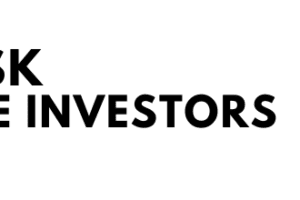Patrick Richard, CEO of Stoneweg US, sits down with the AFIRE Podcast to discuss the current state of ESG in commercial real estate, and why now is the time to lean in to smart sustainability strategy.
business

While rate hikes and pricing dislocations have frozen CRE liquidity, there is still a significant demand for equity. These conditions create prime vintage for secondary investments.

While rate hikes and pricing dislocations have frozen CRE liquidity, there is still a significant demand for equity. These conditions create prime vintage for secondary investments.
Paul Bernard, president and CEO of Affordable Homes & Communities, joins the AFIRE Podcast to talk about new approaches to the growing problem of housing affordability and attainability.

When it comes to market and asset selection, greater availability of property-level operational data and sophisticated tools to measure, analyze, and predict it (including AI) can help address key questions.

Without a framework that considers the causal factors underpinning the current office market dislocation, investors are left sifting through millions of square feet of office space in search of the right property.

General Stan McChrystal (Ret.), CEO and Chairman of the McChrystal Group, sits down with podcast host Gunnar Branson to talk about the state of risk management for global investors.

By blending emerging capabilities such data fluency and AI literacy with distinctly human strengths, creativity, and emotional adeptness, real estate leaders will be positioned to have an outsized impact for the commercial real estate industry.

Jeffrey Kanne, president and CEO of National Real Estate Advisors, sits down with podcast host Gunnar Branson to talk about the “new railways” of real estate: data centers.

Some recent research argues that more direct approaches to real estate investing can more effectively address the characteristics, opportunities, and risks associated with the current state of commercial real estate.

Mark Zandi, Chief Economist for Moody’s Analytics, joins Gunnar Branson and the AFIRE Podcast to talk interest rates, CRE, what’s next for the global economy.

Some recent research argues that more direct approaches to real estate investing can more effectively address the characteristics, opportunities, and risks associated with the current state of commercial real estate.

Anticipated moderation in new developments and the positive outlook for rent growth signal a more balanced multifamily market. Until then, investors should maintain a strategic and long-term perspective.

Anticipated moderation in new developments and the positive outlook for rent growth signal a more balanced multifamily market. Until then, investors should maintain a strategic and long-term perspective.

Bridge Investment Group’s 2024 Outlook suggests that, to navigate the curve for the year ahead, accelerate through the turn and find the appropriate entry and exit points, rather than trying to perfectly time the market.

Martha Peyton, CRE, PhD highlights the current state of the market and calls for modest growth and retreating inflation 2024.

New York Life Real Estate Investors discuss trends in rising operating expenses for various commercial real estate asset types.

The question must be asked – will rising insurance and other expenses put a brake on development in high-growth regions?

For the past several years, real estate industry watchers have hailed insurance costs as the canary in the coal mines of climate change. With global temperatures continuing to rise at a geologically unprecedented pace, the canary remains in flight.

The year 2023 has been the hottest year in recent record—and it will likely be the coldest year for the rest of our lives.
